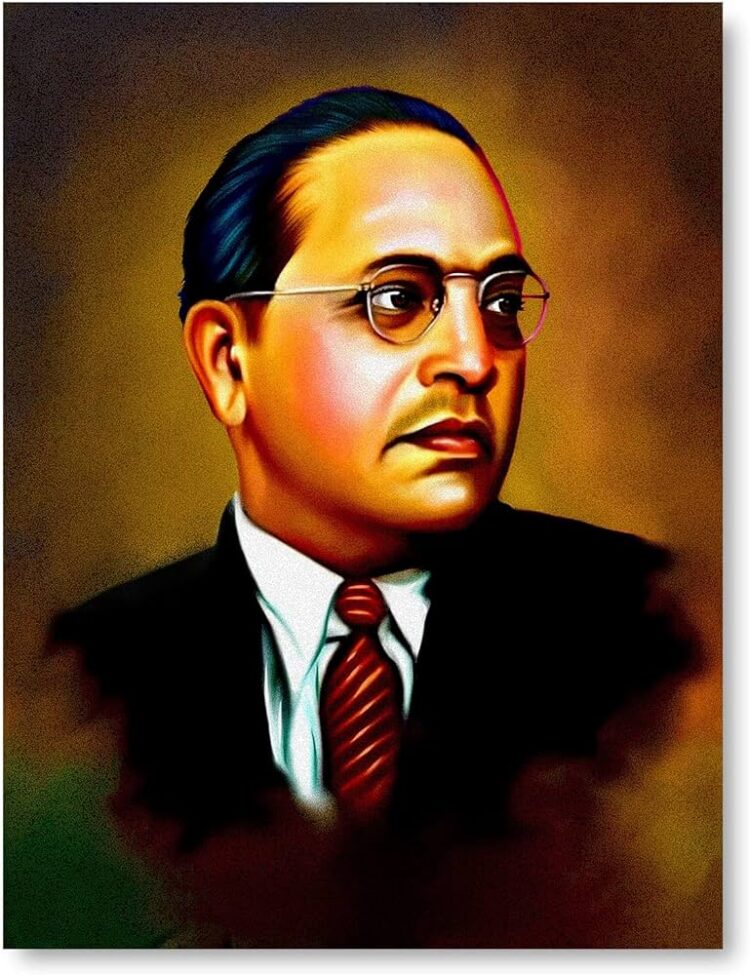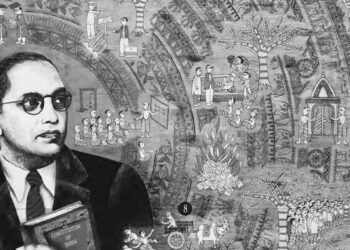One of the salient features of the Indian Constitution is that it lays down the structure of a federation just like various other western states. The exact nature of the federation of states that India has been is up for debate for a very long time. Federalism was also part of intense debate in the Constituent Assembly. JB Kriplani, who was the President at the historic Meerut Session, 1946 of the Indian National Congress, while outlining the proposed Constitution stated that it must be federal in character with maximum autonomy given to the states.
A trend towards centralization became more irresistible, with the core of the Indian problem being absent after the Partition. Yet, the Indian situation did not at all rule out the necessity of a federation as the composite and heterogeneous character of the Indian state was too real to be ignored. A federal structure of state with considerable autonomy for the provinces and regions was, therefore, historically imperative although the Union was certainly going to be much stronger than what had been anticipated by the Cabinet Mission.
* When Dr. Ambedkar presented the Draft Constitution to the Constituent Assembly, he described the Constitution proposed to be federal, even though the word used in Article 1 was ‘Union’ and the word “federal” was never mentioned in the Preamble or any other provision.
* There was a fair consensus in the Assembly that in the view of the external conditions as well as the vastness of the country and its diverse elements, a unitary system was not only undesirable but also unworkable.
* India, therefore, was going to have a Federal Constitution. This view was carried by the members till the end, notwithstanding further centralizing elements introduced during the proceedings.
* After the Partition, the necessity of a strong centre was imperative and going back to a unitary system of governance was not an option.

Concept of Federalism
The concept of federalism did not go unnoticed by the Constituent Assembly. As with many other western political concepts such as republicanism, democracy, parliamentary form of government, the concept of federalism was also adopted in the discussions and later adopted by the drafters of the Constitution. The federal systems of the then U.S.S.R and the U.S. were being considered. In the U.S.S.R, for example, their diversity of races, languages, and cultures, the sprawling underdeveloped tracts, and their primitive areas of economic backwardness, had provided parallel examples of problems to be solved. But the dictatorial methods used by the Soviets and the monolithic ideology of communism impelled the non-dogmatic and democratic, Western inclined Indian leaders to copy more finely the federal scheme of the United States.
With regard to the nature of a federal state, Mr. N. Gopalaswami Ayyangar proclaimed that one of the essential principles of a Federal Constitution is that it must provide for a method of dividing sovereign powers so that the Government at the Centre and the Governments in the Units are each within a defined sphere, co-ordinate and independent.
* He said that the orthodox definition of federalism as adopted by other constitutions was not rigidly followed as there was no clear demarcation between the functions of the Centre and the States and that they had to be dependent on each other.
* This definition would not apply to the Indian context as they were facing problems which many of the constitution-makers who adopted federalism had not faced historically.
* The problem was to integrate and bring areas which were under the British Crown under one Federation.
Dr. Ambedkar made it clear that only the President can exercise the power under Articles 250, 352 and 353 of the Constitution and this exercise requires the approval of both Houses of the Indian Parliament.
* He outlined this view when he opined thus: “These provisions make the Indian Constitution both ‘Unitary as well as Federal’ according to the requirements of time and circumstances. In normal times, it is framed to work as a federal system. But in times of war, it is so designed as to make it work as though it was a unitary system.”
India – A Union of States
According to Article 1 of the Constitution, India is a Union of States. As the Chairman of the Drafting Committee, Dr. Ambedkar was responsible for the word UNION being substituted for FEDERATION.
* The Drafting Committee stated that there were advantages in describing India as a “Union”, despite its Constitution being federal in structure.
* Reiterating this view in the Assembly, Dr. Ambedkar said that the Unitary Government of South Africa was called a Union and so it was not contrary to usage to describe India as a Union.
* Dr. Ambedkar clarified that though India was to be a Federation, the Federation was not the result of an agreement (or a contract) by the States to join a federation, and that the Federation, because of not being the result of an agreement, no State had the right to secede from it. The Federation was a Union because it was indissoluble.
India will prosper only if all its states prosper. If there is discord between the Centre and the States, the strong foundations of federalism and democracy on which our country has thrived will start collapsing. What is yet to be seen is how successive governments deal with the problems of decentralization and demands for autonomy and statehood. There is hope for our polity to build on what the previous governments left behind and through this, we must create a legacy for the entire world to see, respect and admire.
GRAMMER OF ANARCHY
We must hold fast to constitutional methods of achieving our social and economic objectives. It means that we must abandon the method of civil disobedience, non-co-operation and satyagraha. When there was no way left for constitutional methods for achieving economic and social objectives, there was some justification for unconstitutional methods for achieving economic and social objectives. But where constitutional methods are open there can be no justification for these unconstitutional methods. These methods are nothing but the Grammar of Anarchy and the sooner they are abandoned the better for us.
– Dr. B.R. Ambedkar in the Constituent Assembly on 25th November 1949








